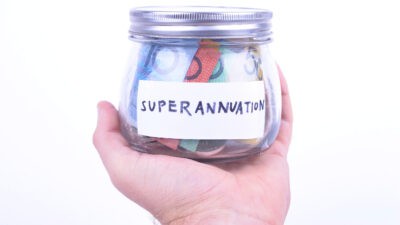One of the great aspects of our superannuation retirement system is that it gives us a say in what assets our super cash ends up invested in.
Of course, there's always the option of going down the self-managed super fund (SMSF) path, where we can individually curate our own super portfolios. But for many Australians, an SMSF remains out of reach, thanks to the significant asset base required to make it worthwhile.
For the vast majority of Australians who have their super entrusted to a super fund, there are still options, though. Most Australians typically opt for what's known as a 'balanced' super fund. This approach invests a client's money into a variety of different asset classes.
Usually, a balanced fund will be dominated by share investments, both Australian and international shares. But these funds also employ other asset classes to diversify risk, such as bonds, private equity, property, and cash investments like term deposits.
But instead of opting for a mixed portfolio, Australians also have the option of investing in just one asset class. This could be shares, bonds, or cash.
Is cash king or trash in superannuation?
During periods when the stock market is volatile, many Australians might be tempted to switch their super to 100% cash. It can be incredibly difficult watching your nest egg lose huge amounts of value during a stock market crash. Thus, switching to cash is an understandable reaction.
But it can also be a move that can kneecap your superannuation portfolio and cause decades' worth of damage to your retirement prospects.
Every Australian has different goals. So it is hard to make sweeping statements like 'never switch your super to cash'.
However, chances are it will be the wrong move unless you're in a very specific cohort of super investors.
Our super is invested in growth assets like shares for a good reason. These are the asset classes that have historically delivered the best returns for all investors over a long period of time. As such, they are our ticket to the most comfortable retirement we can have.
Low risk equals low returns
The trade-off for the higher returns that shares enjoy is market volatility. A market crash can severely impact the value of your super portfolio if it is invested in shares. However, this damage is usually temporary. After all, the stock market has always recovered from its litany of historical crashes to hit new all-time highs.
This is why it makes sense for any superannuation holder who still has at least five years of working life left before retirement to have at least a significant level of their super invested in the share market.
On the other hand, cash does provide safety from market crashes and the peace of mind that comes with it. But you will pay the price of forfeiting those higher historical returns if you do so. Thus, if you're 30 years old and still have another 35 years or so left before you intend to retire, it makes absolutely no sense to 'switch to cash'.
Making the switch to cash might make sense for some investors who are nearing retirement. Or for those that have already retired, and thus have to worry about preserving their nest egg after employment income has dried up. But it does not for almost everyone else.
What do superannuation funds say about making the switch?
Superannuation funds themselves will tell you a similar tale.
Here's some of what the Australian Retirement Trust super fund says on the matter:
The Cash option has a very low risk level when measured over the short term. However, if you intend to stay invested in this option for a longer timeframe, you should consider whether the current low returns will be enough for your situation.
One of the mistakes some investors make is switching to Cash and locking in a loss in their previous investment option, rather than focussing on long-term goals.
And here's a cautionary tale from Aware Super:
During the Global Financial Crisis (GFC) of 2008, the extended period of market volatility caused some clients to switch to more conservative options like Cash.
Now, that may have initially felt reassuring as markets kept falling. But those clients locked in a loss of 8.5%, on average, at the time of switching.
And here's the big red flag.
Of those who switched to cash, not many switched back out, so they missed the rebound in markets, as well as the subsequent decade of sustained growth.
Readers should also take note of this advice from AustralianSuper:
Looking past market turbulence can be challenging. But history shows that markets increase in value over the long term. By staying invested in a diversified portfolio your super has more opportunity to benefit when markets recover.
Members who stay invested in diversified portfolios often end up in a better position in the long term, compared to those who switch investment options.
While switching to cash or a conservative option when you're worried about market volatility can be tempting, it could be one of the biggest mistakes you can make in your retirement journey.
So don't be that person who panics and makes the switch, only to spend decades regretting your choice.









